
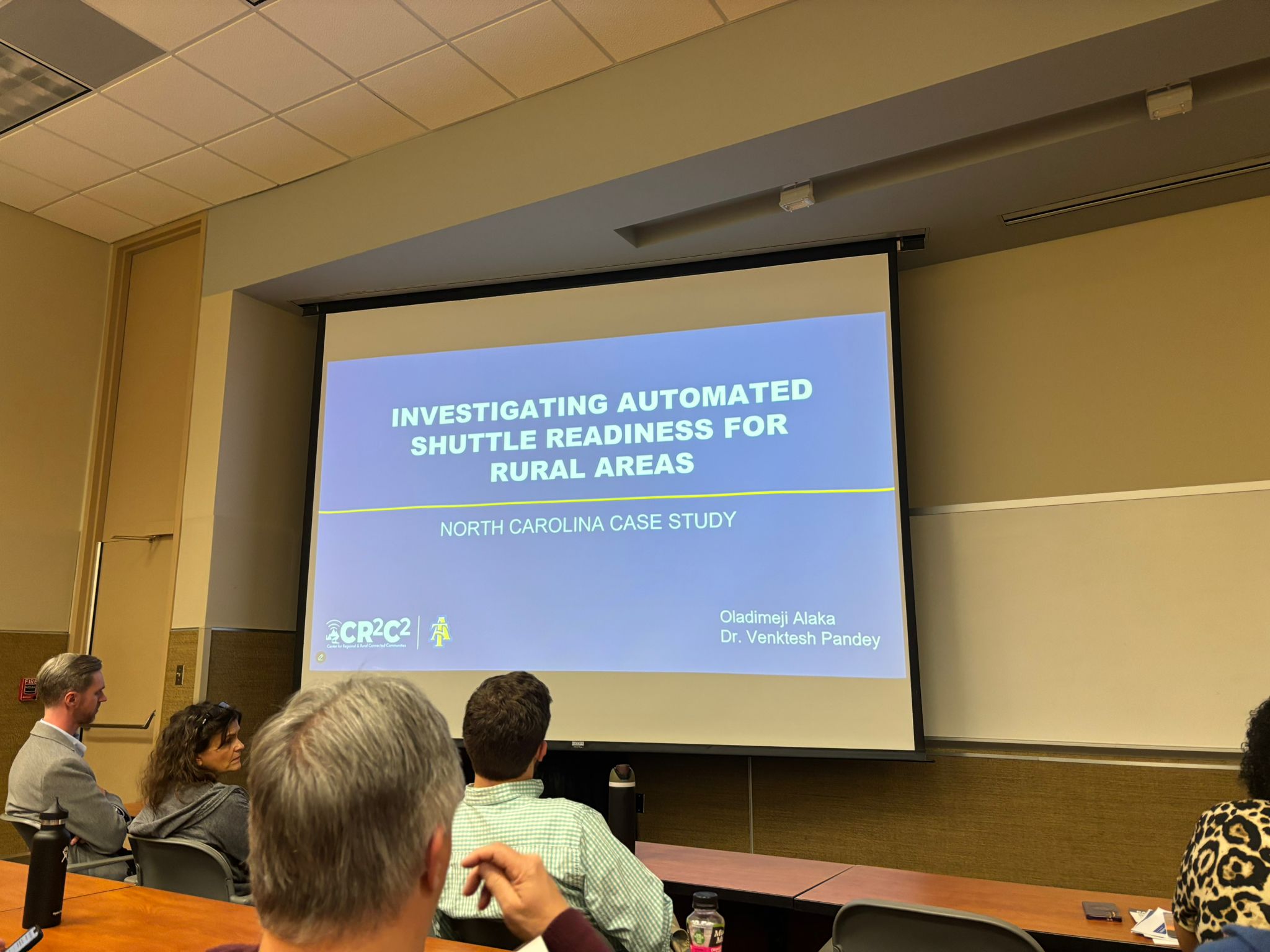
As part of our mission to inspire safety and build resilience, SR4A is proud to highlight a groundbreaking research study led by one of our dedicated transportation researchers. The project, titled
“Investigating Automated Shuttle Readiness for Rural Areas,” explores how communities in remote and underserved regions can prepare for the adoption of autonomous shuttle systems.
With increasing global interest in sustainable mobility solutions, this study delves into the unique infrastructure, demographic, and accessibility challenges faced by rural populations. The research evaluates critical factors such as:
During the NC automated vehicle symposium, our lead researcher presented the preliminary findings to transportation stakeholders, planners, and policy makers.
“We are not just investigating whether these communities are ready for autonomous shuttles—we are asking what we can do to help them get there,” said the researcher.
SR4A continues to work with partners across government, academia, and industry to expand this study and advocate for equitable access to next-generation transportation solutions.
SR4A is excited to spotlight one of our lead researchers who recently presented at the prestigious Transportation Research Board (TRB) Annual Meeting in Washington, D.C. The session focused on our latest study:
“Investigating the Effect of Safety Concerns in the Widespread Adoption of Autonomous Vehicles (AVs).”
As AV technology evolves, public acceptance remains one of the biggest barriers to large-scale deployment. This study addresses the question:
What role do safety perceptions play in shaping the future of AV adoption across diverse communities?
Our research explores:
At TRB, our researcher shared key findings from a city-level perspective to investigate how the publics opinion fluctuate with increasing safety concerns in autonomous vehicles.
“Technological innovation must be matched with trust-building. Our work is about bridging that gap,” the researcher emphasized during the session.”
This study is part of SR4A’s broader Future Mobility & Resilience program, which advances research on safe, equitable, and inclusive mobility systems in both urban and rural contexts.
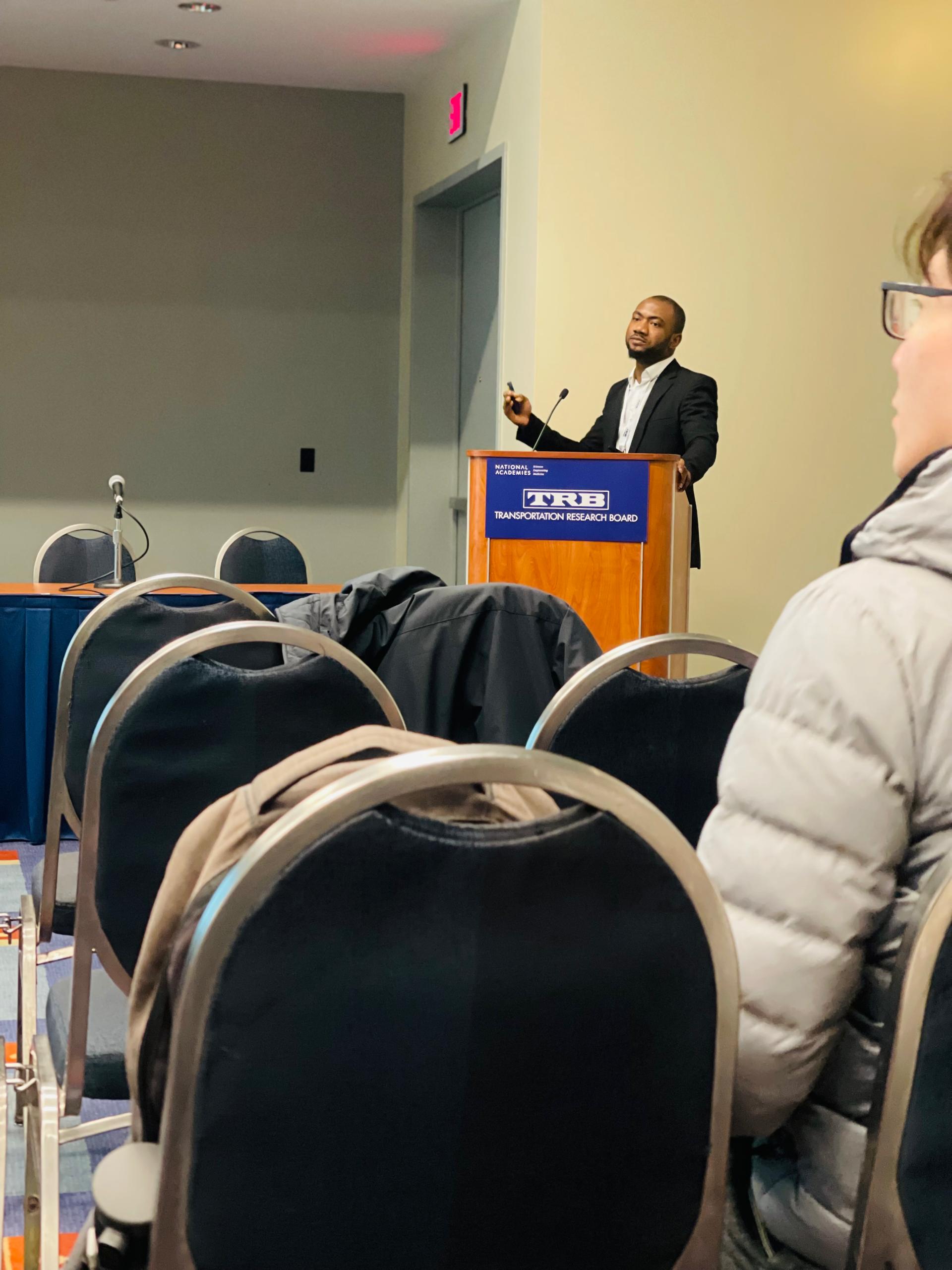
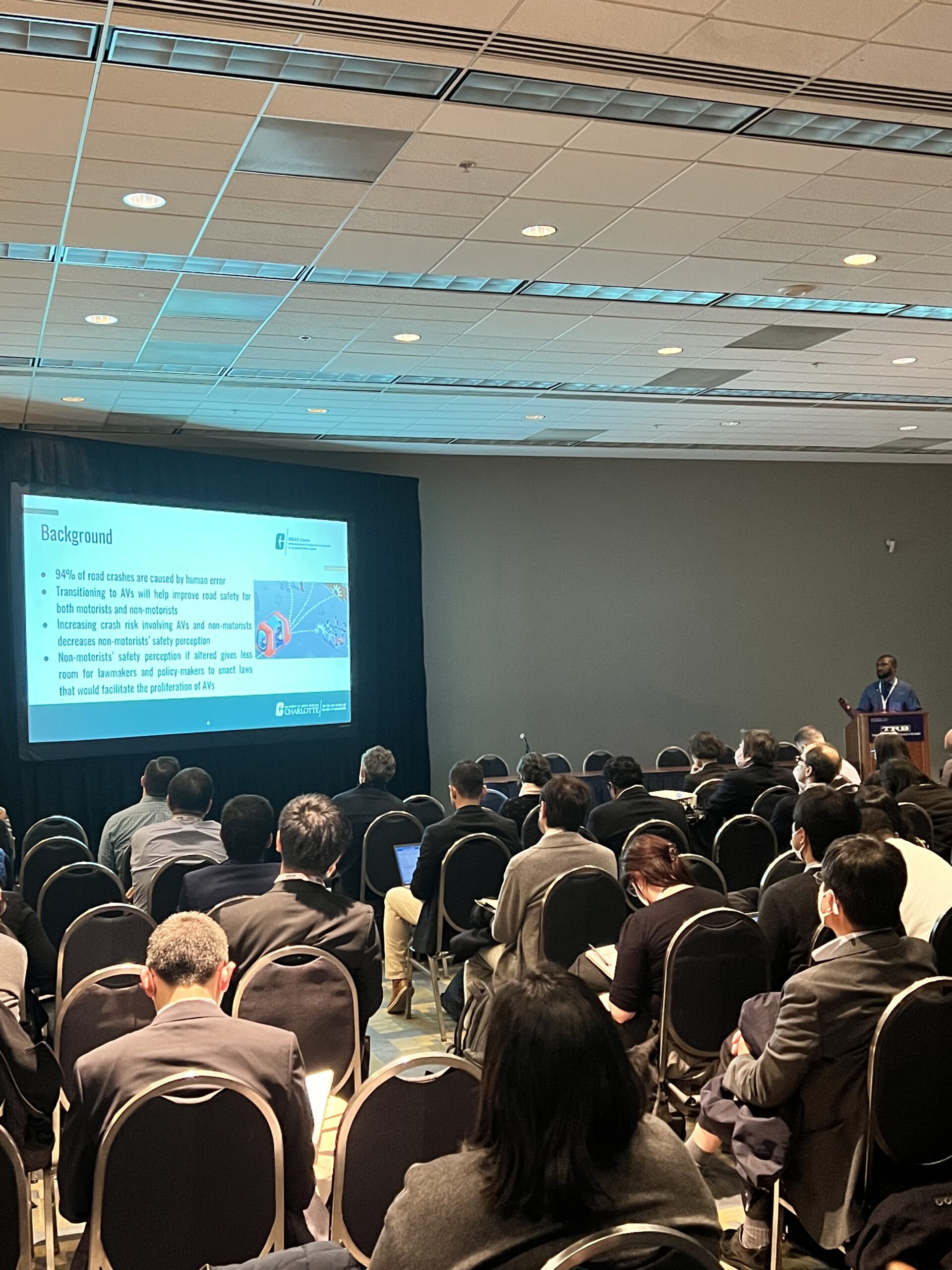

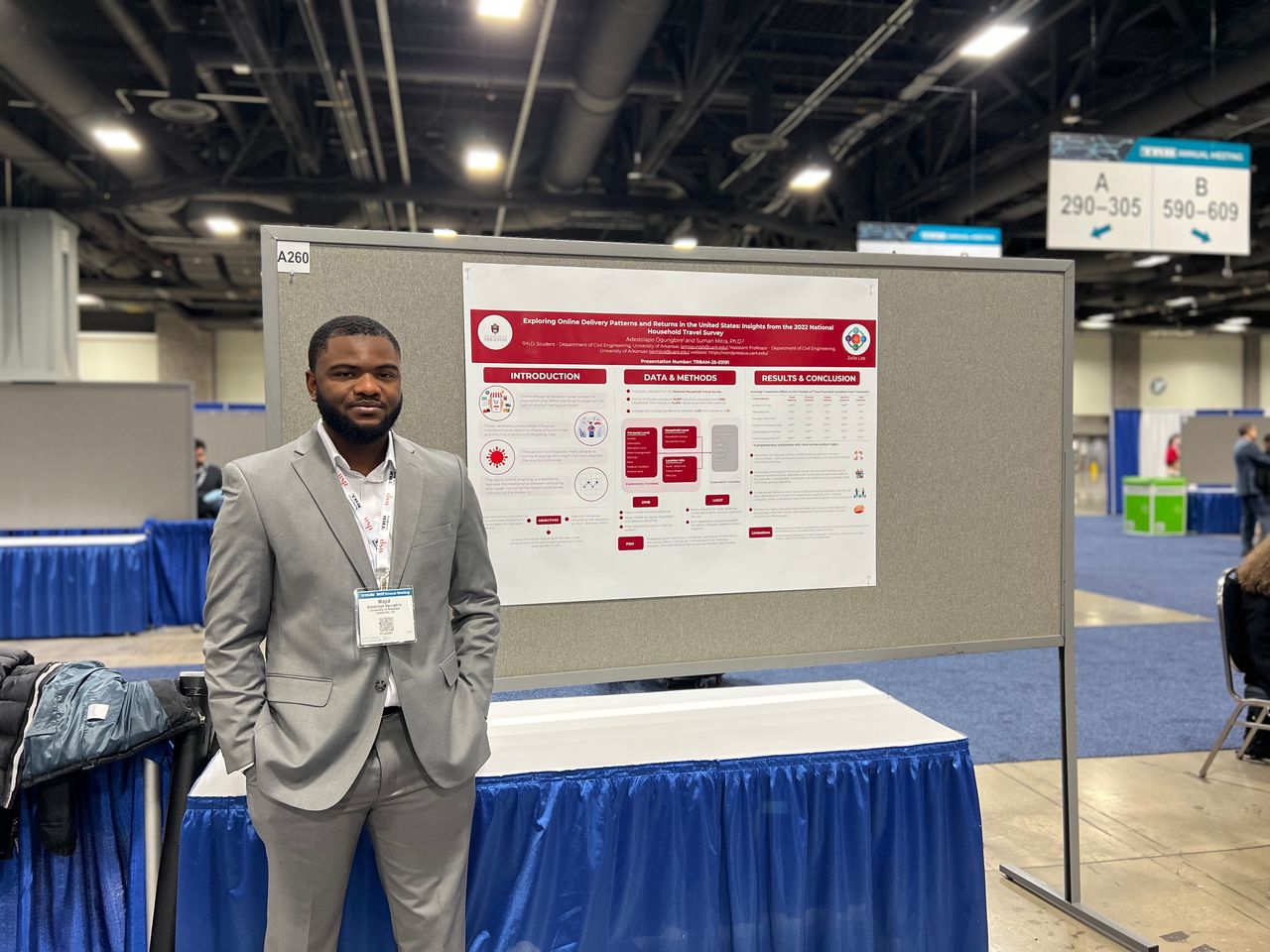
At the forefront of transportation innovation, SR4A proudly highlights Adedolapo, one of our leading researchers, for presenting groundbreaking work at the Transportation Research Board (TRB) Annual Meeting held in Washington, D.C.
His study, titled “Crash Prediction Using a Machine Learning Approach,” explores how advanced data-driven models can revolutionize the way we forecast and mitigate roadway crashes.
Leveraging a combination of historical crash data, roadway characteristics, and environmental variables, Adedolapo applied cutting-edge machine learning techniques to:
“With machine learning, we are not just reacting to crashes—we are anticipating and preventing them,” Adedolapo noted during his presentation.”
The research underscores SR4A’s commitment to innovative safety solutions and aligns with our broader mission to harness technology for resilient, data-informed transportation systems.
This work is part of our Smart Mobility and Safety Analytics program, driving insights that help agencies and stakeholders make smarter, faster, and safer decisions.
Coming soon: Downloadable research brief, model framework, and interactive dashboards from the study.
The presentation, titled “Understanding the Effect of Weather-Related Crashes in Mountain Regions,” examines how adverse weather conditions—such as snow, fog, and rain—contribute to elevated crash risks in mountainous terrains. These environments are often more vulnerable due to limited visibility, steep grades, and reduced emergency response times.
The study used advanced geospatial analysis and crash data modeling to:
“Climate variability is no longer a distant concern. It’s a present challenge affecting how we build and operate safe transportation systems,” Abimbola shared during the session.
This project is a key part of SR4A’s Climate Resilience in Transportation program, which aims to equip agencies with the tools and strategies needed to design weather-resilient transport systems, especially in vulnerable or rural regions.
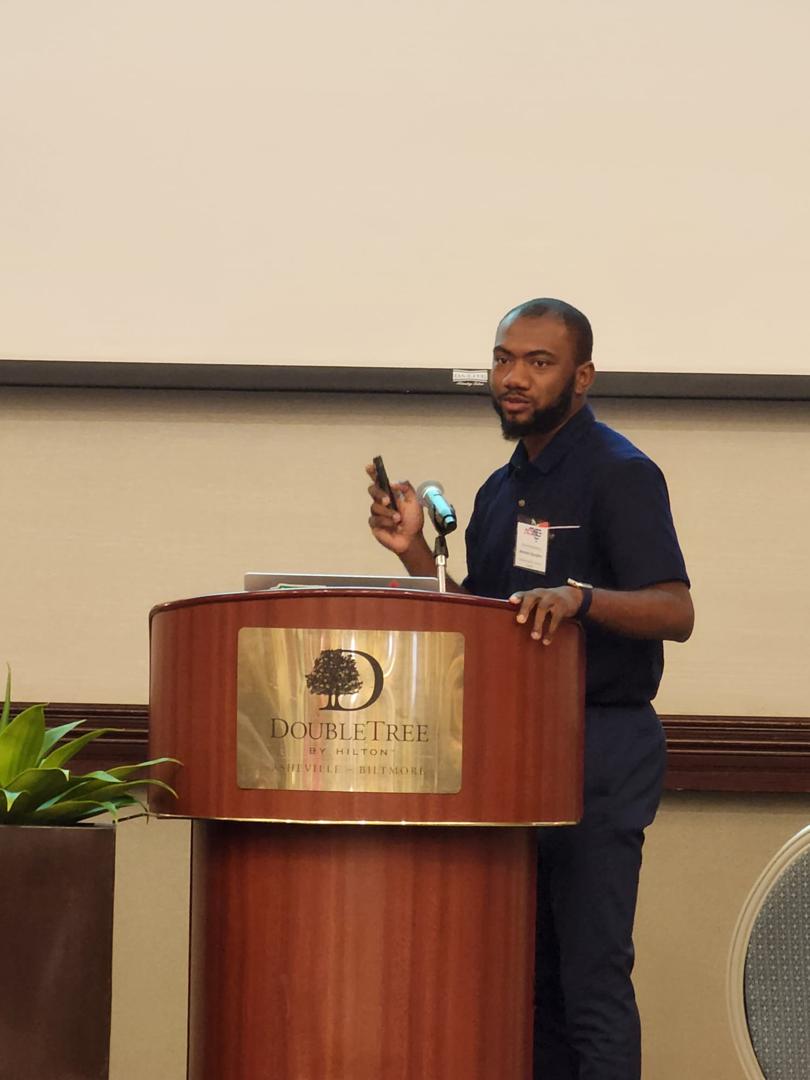
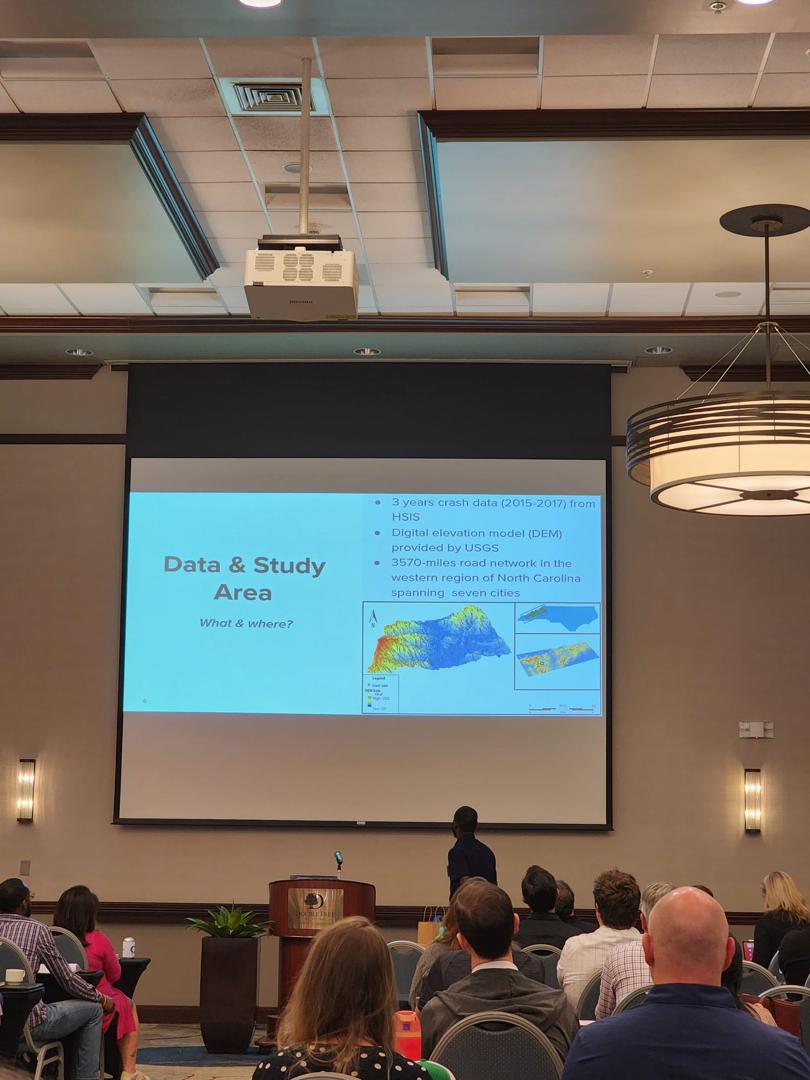
SR4A advocates for safe, sustainable transportation and climate action, aligning with SDGs 11 and 13. Through research, education, and workshops, we promote road safety and environmental awareness to create a more inclusive and resilient future.
Write your email.
Duis aute irure dolor in reprehenderit in voluptate velit esse cillum
Excepteur sint occaecat cupidatat non proident, sunt in culpa qui officia.
Write your email.
2025 SR4A. All rights reserved.